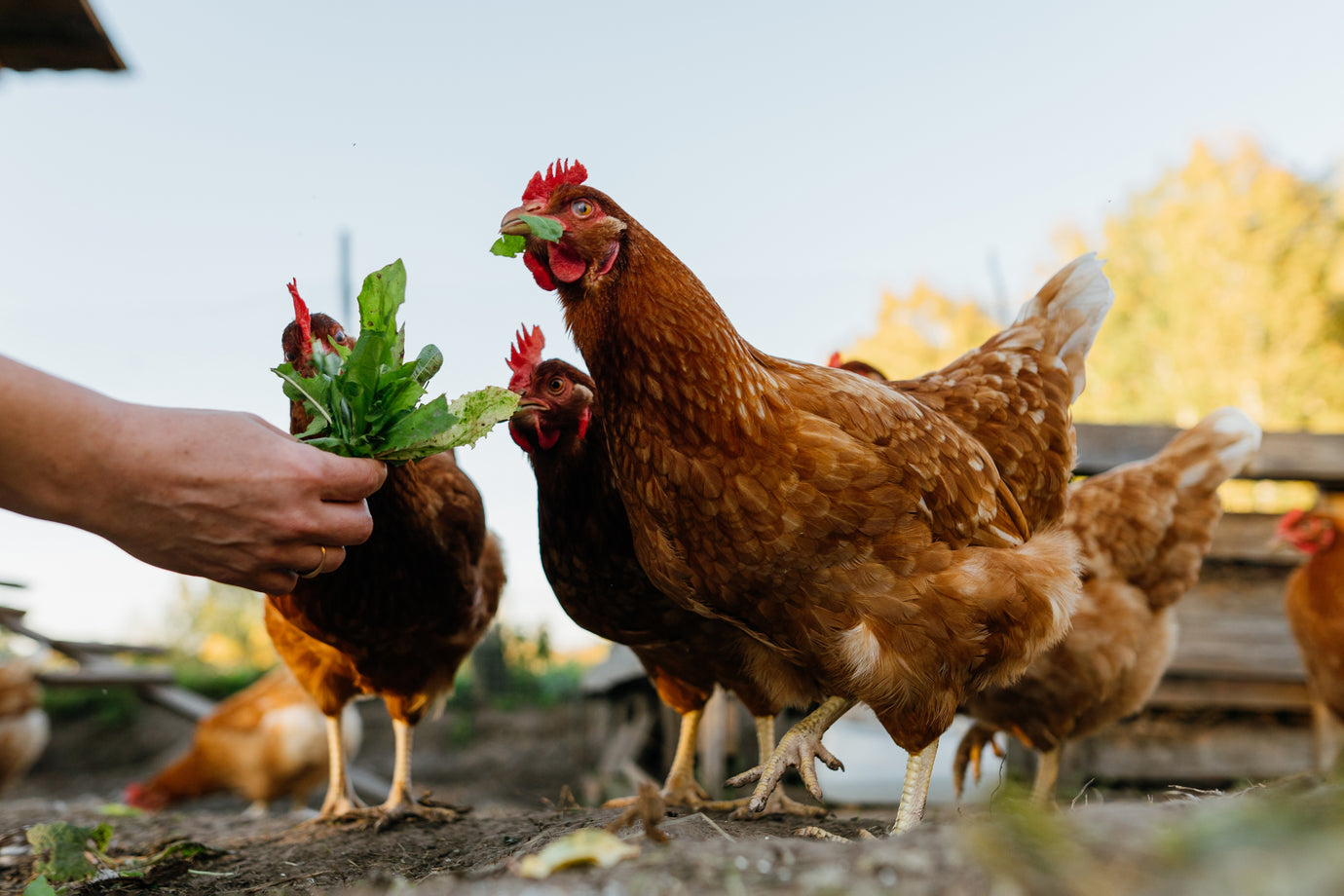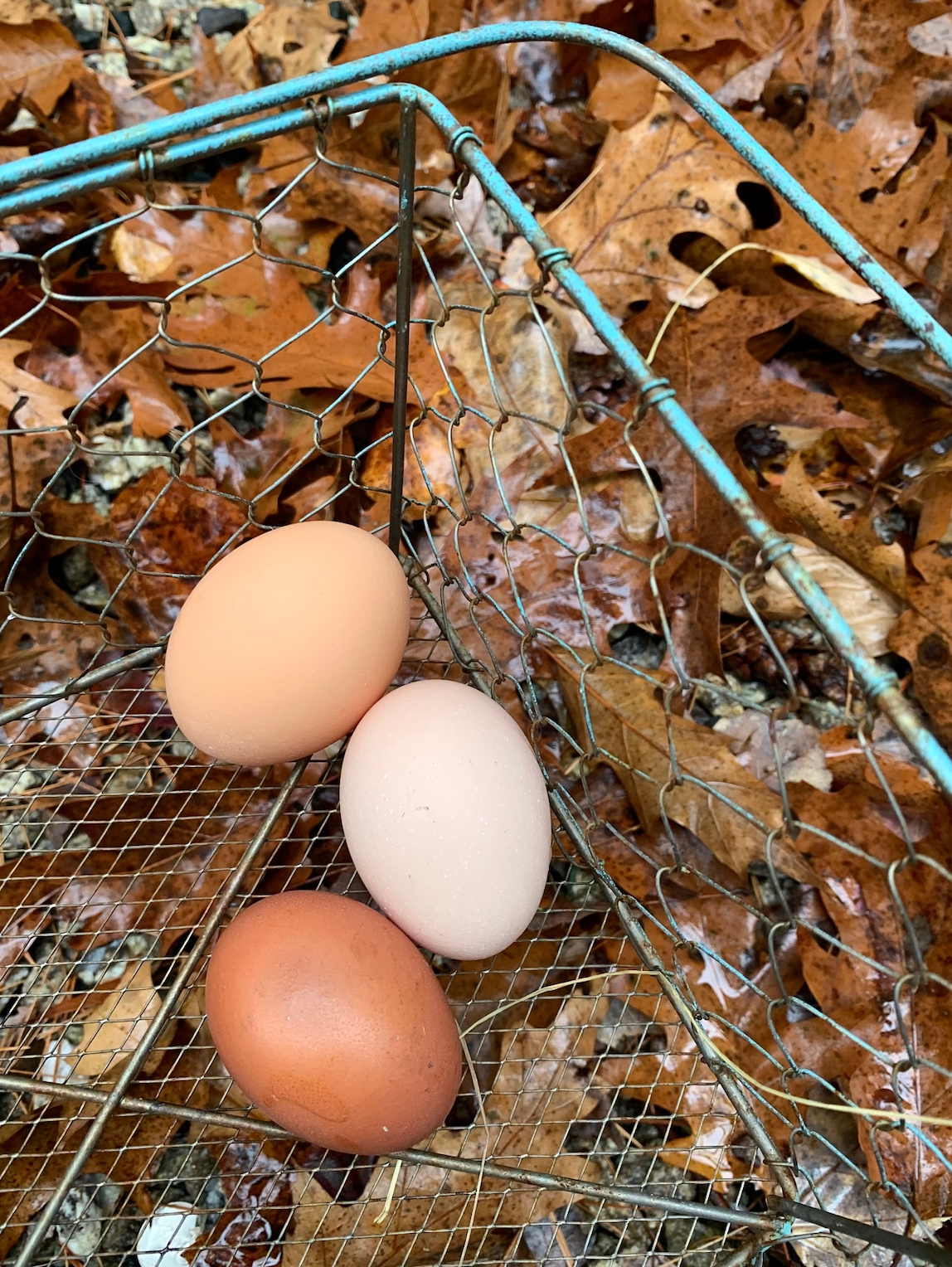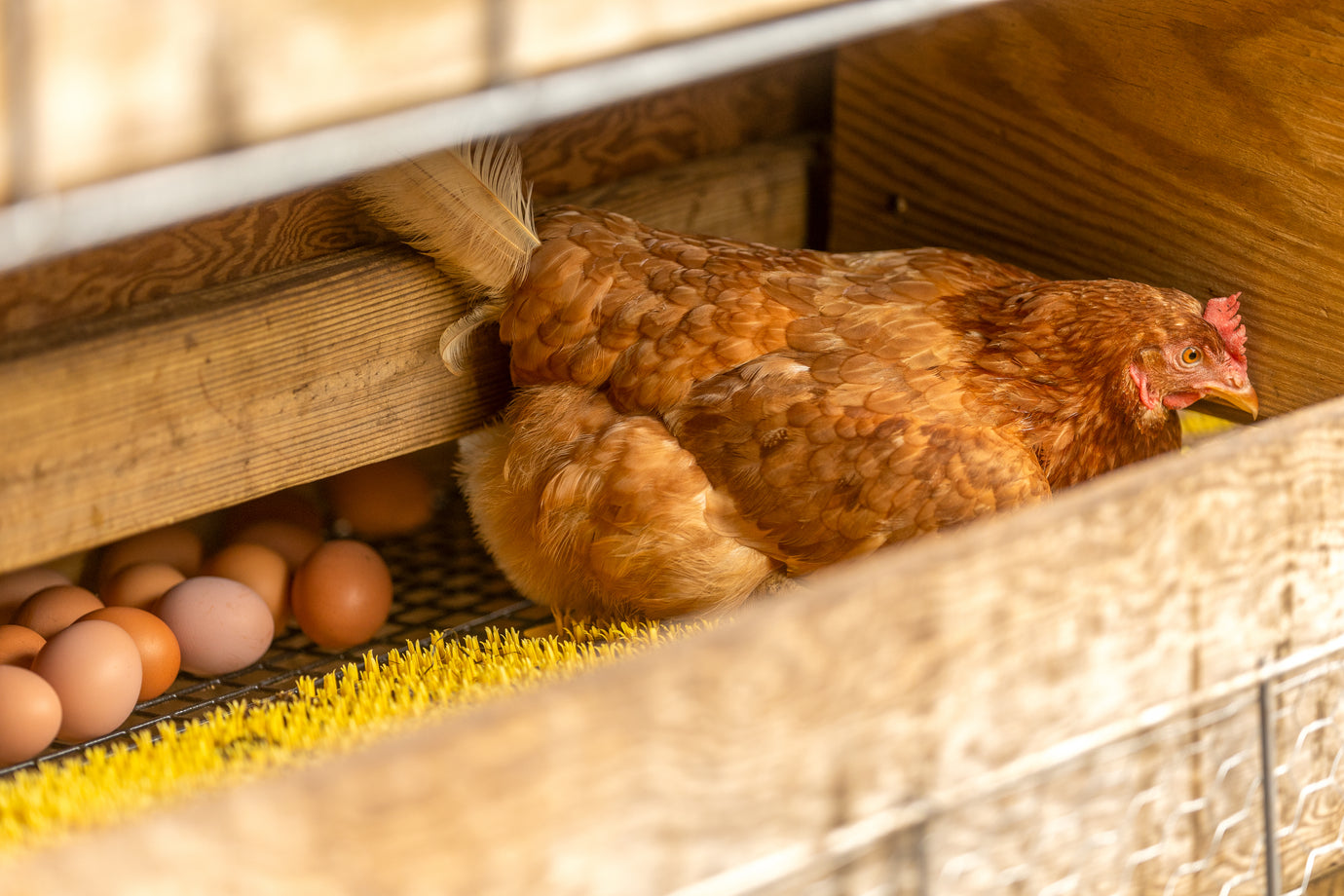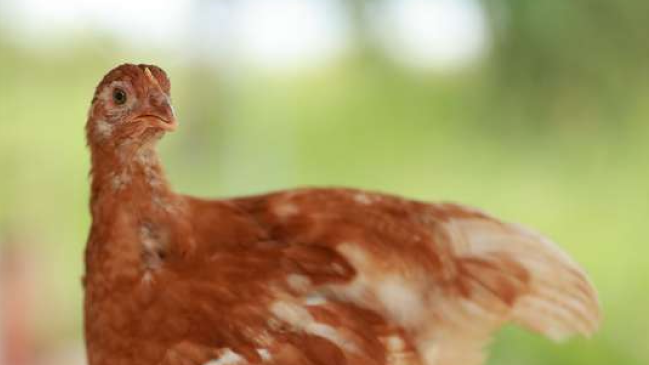All About Broody Hens
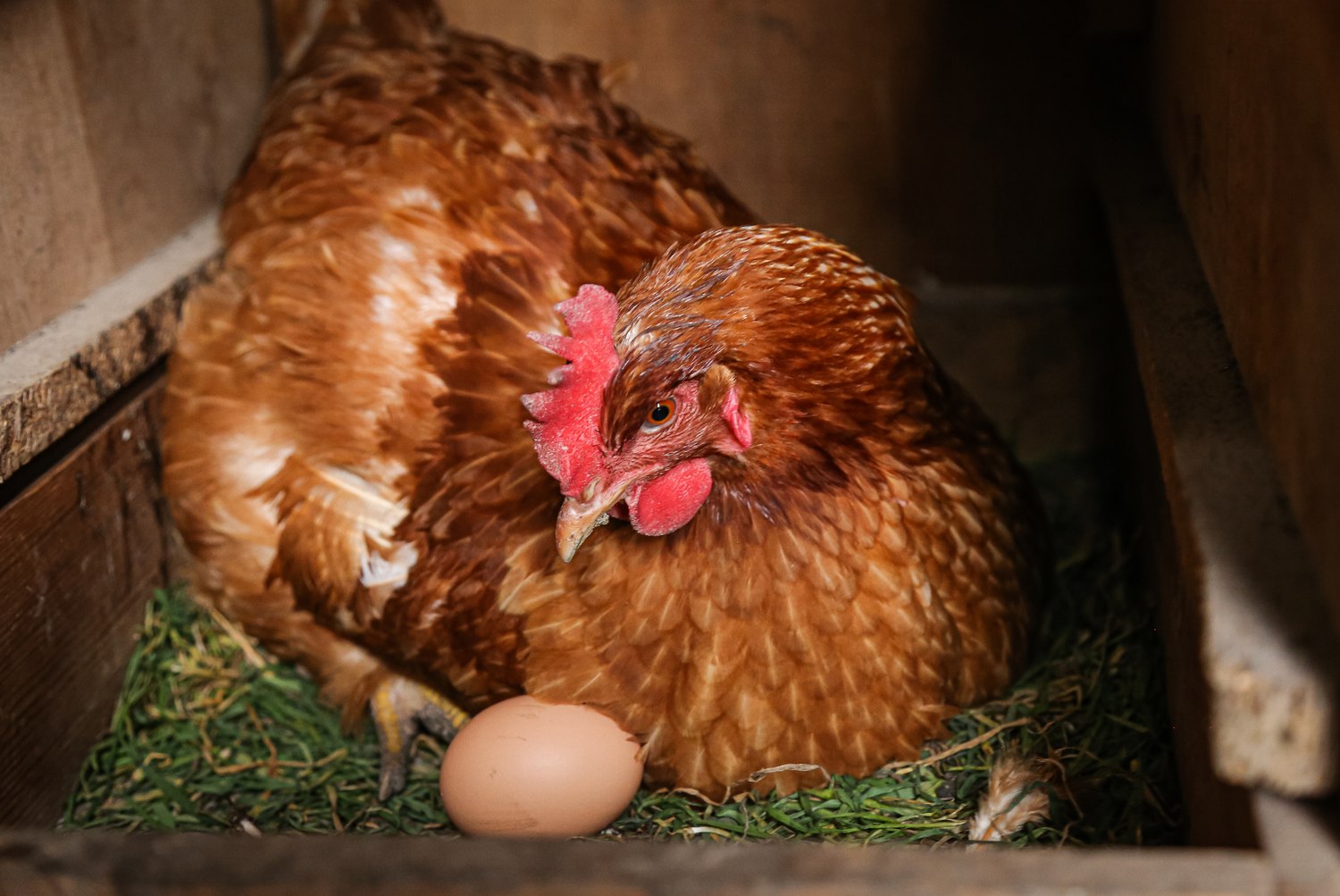
What’s a Broody Hen?
Broody isn’t just a word for moody teens or lovestruck romance novels. It’s actually a word that describes a hen. Specifically, a hen that is hatching chicks. In this article, we’ll talk about what a broody hen is, how you know if you have one, and how to care for one. Let’s get started.
What is a Broody Hen?
A broody hen is a hen that is in the process of hatching chicks. Some chicken breeds are well-known for going broody, like silkies, while other breeds, like leghorns, aren’t so maternal (as a general rule).
Discovering that you have a broody hen can be quite startling! You might go to the coop and find there are no eggs waiting to be collected. Your normally sweet and docile hen may suddenly become a mild terror, growling, pecking, and being quite anti-social.
If you’ve slacked off on gathering eggs from the coop for a few days, you are in prime territory to kick off a broody session. A hen will lay or gather up eggs every day until she feels her ‘clutch’ is complete. An average clutch for a hen is around 10 to 12 eggs, but some hens will go overboard and gather more than they can actually incubate. On the other hand, other hens don’t need that many eggs to kick off their broody instincts and might just sit on one or two.
She’ll find a comfy spot to gather her eggs. Hopefully, this is in a specified nest box. But sometimes, they’ll go broody in strange places! I’ve had hens try to go broody under a bush, in the garage, and even in the shed. Unfortunately, broody hens are easy targets for predators, so if you see your hen hanging out somewhere she shouldn‘t be, you’ll want to lend a hand and help her and her eggs into the coop.
Once she’s got enough eggs to suit her taste, she’ll do nothing but sit on them. A broody hen will stop laying eggs and keep her little clutch warm almost all day. She’ll probably get up once in the morning, defecate, and get something to eat or drink. Then she’ll return to her nest and stay there the rest of the day. She might get up once before bed, but it isn’t unusual to see a hen only get up once per day.
This will last about 21 days, like clockwork, until the eggs begin to hatch. Some hens will continue sitting until all her eggs are done hatching, while others will abandon the nest once a few chicks have made their entrance into the world. If the coop is hot enough, the remainder of the eggs may hatch even without the momma’s help.
Once the chicks are hatched, she’ll change over from broody momma to momma bear. A good hen will be dedicated to raising her chicks, although sometimes they’ll abandon the chicks too young or will even attack them, thinking they are a threat to the other eggs. This is very rare, and you can always intervene and raise the chicks in a brooder until they are big enough to return to the flock.
It might be several months until the broody momma returns to laying eggs, as she’ll need time to recover.
How Do You Know If Your Hen Is Broody?
It’s generally pretty obvious if a hen is broody, but here are some telltale signs to watch for:
- She isn’t as active as she was.
- She doesn’t want to leave the nest.
- She will growl, ruffle up her feathers, and peck at you when you try to gather eggs.
- She will leave one very large, smelly poop per day.
- You might not see her get up to eat or drink.
- She isn’t laying any new eggs.
- She is very grumpy or protective of her eggs.
How Long Will a Hen Be Broody?
Broodiness can last for two to three months. She’ll probably start to act grumpy and broody before she starts setting on her eggs. Then, the broodiness will last a bit after all the eggs have hatched. Once she is tending to her chicks, it can still take a month or two for her to return to her regular egg-laying schedule.
How Do You Take Care of a Broody Hen?
The most important part of caring for a broody hen is making sure that she and her eggs are in a safe place. If she happens to go broody outside of the chicken coop, you will need to intervene. You can place the momma and the eggs in a comfortable brooder box, a separate coop, or even inside your regular chicken coop. She’ll need to be locked up at night, just like usual.
Provide her with food and water near her nest. This will help her be more willing to eat and drink since she won’t have to leave the nest. Also, offering Avaplex in the drinking water during this time can also insure a healthy hen during what can be a stressful period.
Keep her area clean. She may need her nest box freshened up a bit from time to time, as broody chicken poo is extremely smelly.
Don’t bother her too much. Try to avoid bothering your broody momma too much. If she gets really stressed out, she might abandon her nest too early. Just leave her alone and let her do her work.
Let the other chickens help. Some chickens will work together to hatch and raise chicks. A good rooster will even take turns sitting on the eggs so the momma hen can get a break. The other hens may take a turn, as well.
Watch out for squabbles. Your broody hen can be quite grumpy towards the other chickens in the flock, so keep an eye out to make sure there isn’t any unnecessary fighting. If there is, you might need to carefully move momma to her own safe spot.
What Happens When the Chicks Hatch?
Many momma hens instinctively know how to take care of their babies. They’ll show them how to eat and drink, guard them, and tuck them up underneath her feathers at night. You’ll hear her clucking to them to tell them what to do! Other hens and your best rooster may also step up and help raise the babies. Roosters can be very proud papas!
You’ll want to make sure that the baby chickens can follow momma back into the coop at night. If not, you’ll want to put momma and the babies in a brooder, or she might lose them.
Very rarely will a momma hen forget that she has babies! In that case, you’ll want to scoop them up and put them in a brooder with a heat source until they are ready to make it on their own.
When Will Your Broody Hen Lay Eggs Again?
It may take your broody hen a month or two to get back to her normal laying schedule. Being broody is very hard on her physically, and she’ll need time to recover. Remember that she went three weeks with minimal activity, food, or water, so her body will need time to replenish its stores. Avaplex® can help your broody recover from the stress, and the digestive boost from Nutriplex-W™ can help ensure a quick nutrient replacement.


